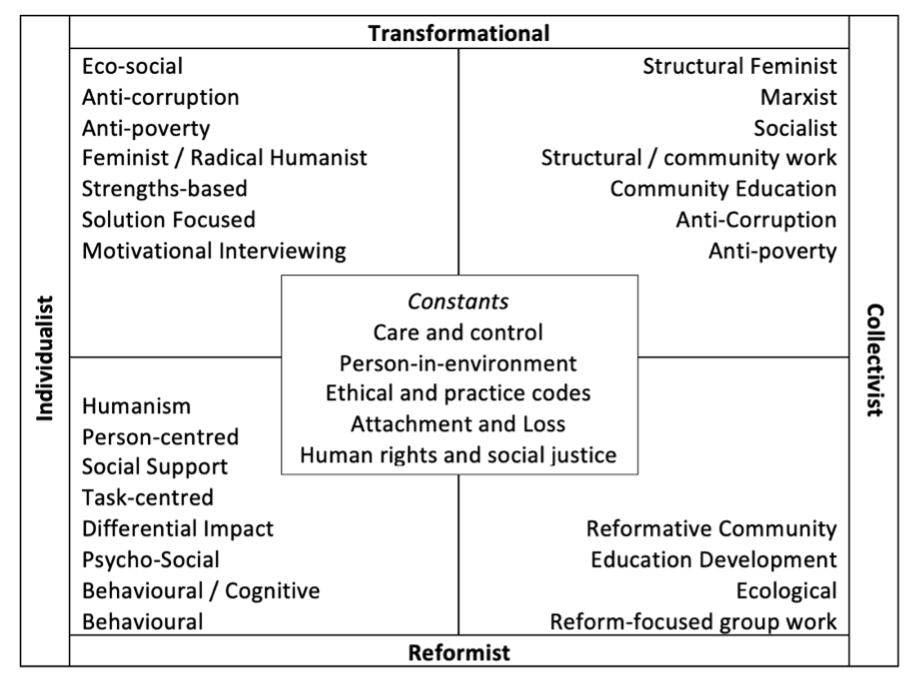By Caroline McGregor
British Journal of Social Work, 49(8), pp. 2112-2129.
Review written by: Dr David Wilkins
What question does this study focus on?
This discussion paper considers whether theoretical frameworks for social work in the 20th century are still useful for social work in the 21st century.
How did they study it?
The author reviewed the work of several notable social work academics, including David Howe and Robert Mullaly.
What did they find?
For the 21st century, social work theory needs to recognise and emphasise the importance of local context in global conditions, move away from the dominance of ‘Western’ ideas, identity the commonalities between social work as practiced globally in different circumstances, and recognise the importance of critical reflexivity. Specifically, the article outlines a paradigmatic framework for understanding different types of theories, suggesting they can be understood on a set of continuums from transformational to reformist and from individualist to collectivist (see figure).

What are the implications?
Social work as a profession, and social workers, need theoretical frameworks to provide a scaffold around which questions can be asked, challenges identified and to facilitate dialogues between services users, practitioners, educators, and policymakers. A-theoretical social work is a contradiction in terms.
Review written by


